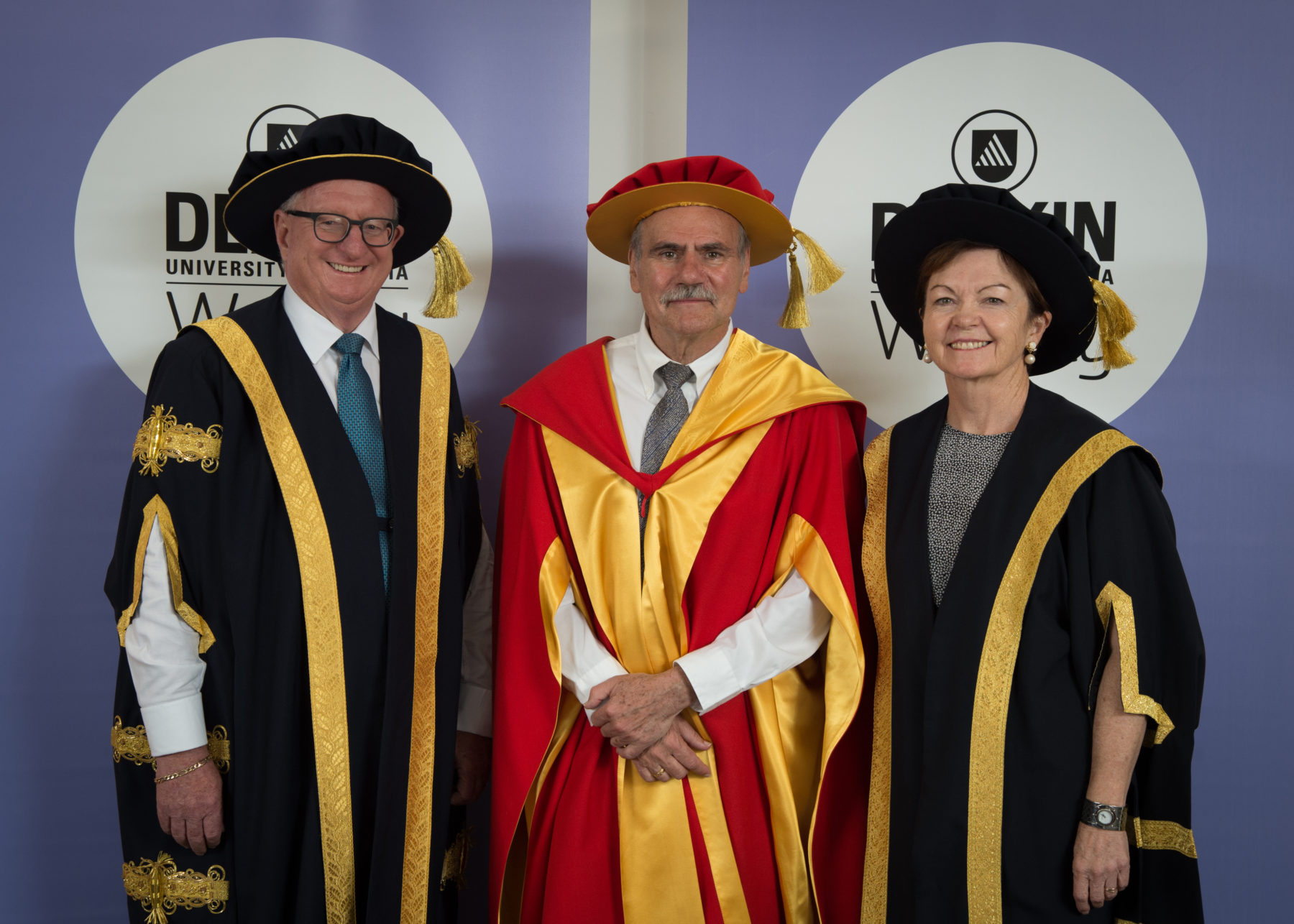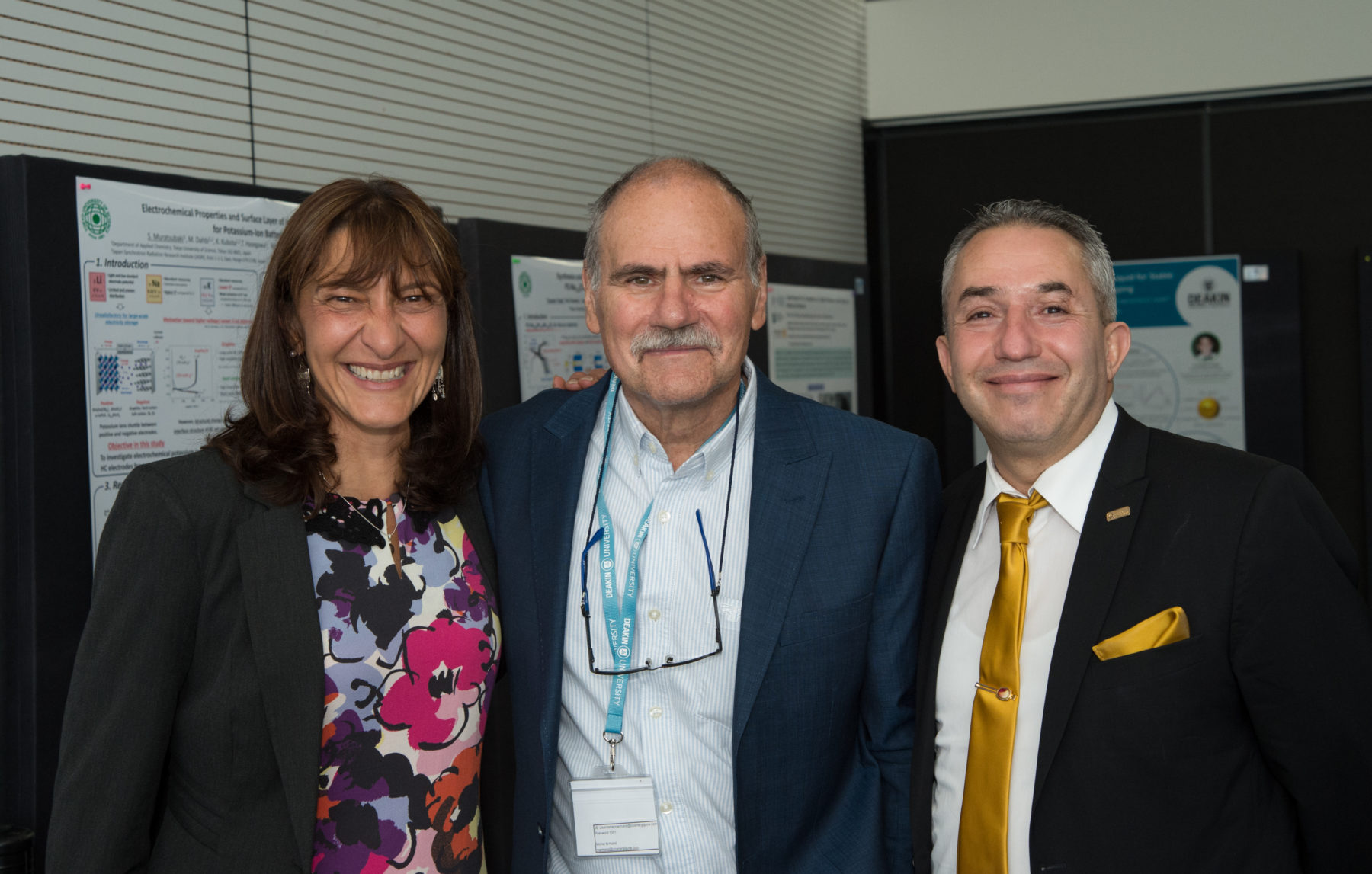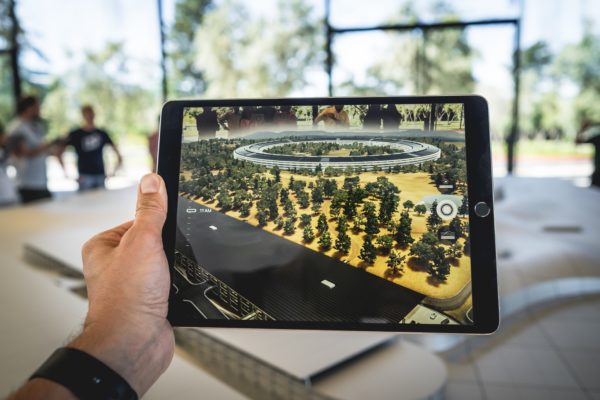The Institute for Frontier Materials is working with pioneering researchers to further our lithium battery technologies. That includes the ones in our electric vehicles, too.
Professor Michel Armand is one of the world’s leading researchers on lithium battery technologies and has been closely involved with the electromaterials group at the Institute for Frontier Materials (IFM).
In 2013 he arrived at Deakin as a Thinker in Residence where his insights and academic guidance gave rise to new research projects and extended the group’s research activities to enable safer, more stable, better performing lithium batteries.
For his work, he was awarded an honorary Deakin doctorate.

During his recent visit to IFM, we spoke to Professor Armand about what’s in store for our energy industries and how it may be time to usher in the new battery generation for transport.
From energised beginnings
At the start of his career in 1970, it was the shroud of orange smog that covered California that inspired Professor Armand to pursue creating novel batteries.
From here, he was looking to electrify cars and limit their pollution rate.
“I decided to work on new battery systems in the hope to make electric cars. Needless to say, this was considered to be quite utopian. The concern with climate change came later and motivated me further.
“Though, I have been able to do my research with decent funding throughout my career. The first electric car powered with a solid-state battery according to the results of my research ran in 2000, and there are now several thousand in several cities worldwide,” Professor Armand says.
But, at the forefront of renewables, Professor Armand notes compromise is vital in the race for cleaner energy. From agriculture to transport, our way of life is bound to change as we navigate its carbon and fossil fuel impact.
“For transport, we need more mass transit, which is restrictive, especially in Australian society with so many cars per capita and the urban sprawl.
“But Australia has all the land to transit from coal and petrol economy to renewable photovoltaics,” Professor Armand notes.
“There is no doubt that the need for academic as well as industrial research will increase sharply.”
Batteries – it’s a new generation
It’s obvious that keeping up with our future energy demands means lots of batteries. But thanks to Professor Armand, we’ve got a clear picture as to why our energy industry needs a ‘recharge’.
“If only 10% of the cars in the World are made electric, we need 20 million tons of batteries.
“If we store 10% of the electricity production for a day, we need 60 million tons of batteries. This gives an idea of the scale of our efforts and the necessity of using only sustainable materials.”
Among these storage solutions include the micro-grid: a 7-megawatt solar energy farm and storage system and a 0.25 megawatt distributed rooftop solar generation and storage system.
Housed at Deakin University’s Waurn Ponds Campus, it’s expected to ‘switch-on’ in mid-2020 and assist Deakin to become carbon neutral by 2030.
Across the battery world, there is a push to replace volatile, flammable organic solvents to create safer batteries with a bigger punch.
Scientists at Deakin’s IFM are world leaders in ionic liquid battery research, Professor Armand says.
Most recently, electromaterials experts led by Professors Maria Forsyth and Patrick Howlett just created a first-of-its-kind lithium metal battery prototype that’s not only safer but has higher storage capacities from your mobile phone to your car.
The drawback of these batteries lies in the rare materials it takes it to create them.
In terms of transport, these materials can store high amounts of energy for the grid. Although, this mass storage requires the mining of finite resources like lithium which adds to our carbon emissions rather than hindering them
“For electric vehicles, the priority is given to the energy density, and this is met today with rare metals like cobalt and nickel too. We have a real problem here,” Professor Armand says.

But, not all hope is lost. It turns out that salty taste in our mouths after a dip in the Ocean might hold the answer. Professor Armand explains:
“The other choice is sodium which is abundant in saltwater and for which there is now relatively sustainable electrode materials (iron and manganese-based), raising much hope.”
One leap for humankind
So, what can the future of energy research look like? Well, it’s all about our storage innovations.
“Transportation and renewable electricity production will be the main markets, and they are gigantic. Humankind has no future without storage.”
“Innovation is now widely distributed between developed nations, either in academia or industry, but China is taking the lead in conventional methods (i.e. organic liquid electrolytes).
“But Deakin is producing high and strong ionic-liquids, a subject which is convincing more and more scientists and possibly industry.”
While their prices must be brought down before they reach our shelves – and there is no fundamental obstacle to that, just economy of scale – it’s clear our world-leading experts are driving energy innovation with sustainability in mind.



